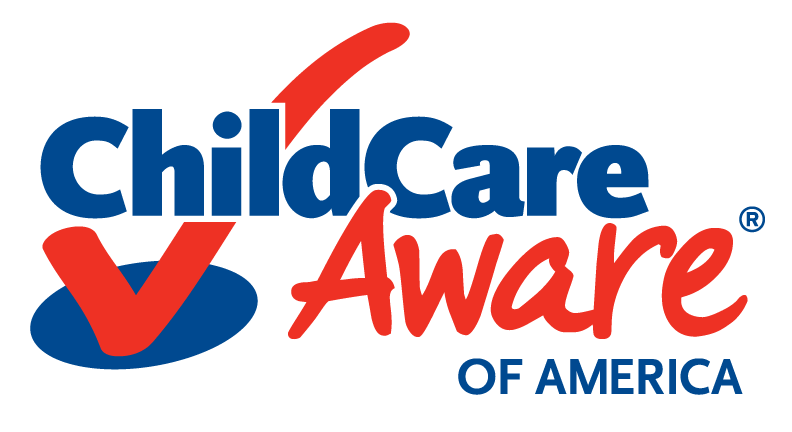
 Have you heard? It seems as if everybody is talking about “brain development” – the term being used to describe new research into the importance of a child’s earliest experiences. You may have read about it in a magazine, or seen it on the web. Maybe you’re hearing it for the first time right here. What parents have known for years – that good early experiences are good for our children – is now being proven by doctors and scientists at research centers and universities all over the country.
Have you heard? It seems as if everybody is talking about “brain development” – the term being used to describe new research into the importance of a child’s earliest experiences. You may have read about it in a magazine, or seen it on the web. Maybe you’re hearing it for the first time right here. What parents have known for years – that good early experiences are good for our children – is now being proven by doctors and scientists at research centers and universities all over the country.
Attention to every stage of a child’s development is urgent. Research now shows that the care babies get has dramatic and long-term effects on how children develop and learn, on how they cope with stress, and on how they react to the world around them. In fact, science tells us that the right kind of experiences in their early years can actually help our children’s brains to grow! And, that it can affect how they continue to learn later on in life.
Just as good food and exercise can help our bodies grow, good early experiences can help our brains grow. Now there is even stronger evidence that there is a link between brain activity and brain growth.
Even before babies can walk and talk, their brains are developing. Neural pathways are the connections that allow information to travel through the brain. The more pathways, the larger the brain. Interestingly, the neural pathways that are developed in your child’s first three years can act like the road maps to later learning. A child with a larger brain or more neural pathways may be able to learn more easily once she gets into school.
One study, completed at the Baylor College of Medicine, showed that babies who had the chance to play often and who were held and touched often as infants, have larger brains with more neural pathways than children who received less attention and care when they were babies.
Nature or Nurture
You’ve heard about nature vs. nurture. It’s the classic debate about how children grow and develop personalities. “Nature” refers to the idea that children are born the way they are, and that what we do has little influence on who they become. “Nurture” refers to the idea that a child’s environment and the manner in which he is raised is the key factor in his development.
Nature and Nurture
Brain development theory holds that both nature and nurture play a role, but that the child’s environment can actually change the way the brain works. The brain a child is born with is constantly growing and changing – whether your child is two months, eight months or three years old. In fact, a child’s brain learns to work in certain ways because of the types of interactions he has as an infant and young child.
Brain Development: What You Should Know
Confused by all the research? You don’t need to be. The basic message is very simple.
- Good early care experiences expand your child’s capacity to learn
- Holding, cuddling and talking actually affect how your child’s brain grows
- Loving and supportive child care “programs” the brain to handle stress and control emotions
- The first years of life lay the groundwork for future experiences
- Reading to and singing with your child every day is a simple and effective way to help brain development
Parents react in different ways to the brain development news. Many parents who hear it feel anxious about what they are doing. One mother of two girls, ages 2 and 4, expressed her feelings this way: “When I read the article in Time magazine, I was overwhelmed. I thought about things I should have done when my kids were smaller. I also thought, what should I be doing differently? But now I’m working, and it’s so hard to find the time.”
Although these feelings are understandable, remember that you may already be doing many of the things that are best for your child. Nurturing your child’s brain development doesn’t require money, fancy toys or special equipment. It does require attention, loving care and knowing when to get help.
Another mother, with a 5 month old boy, felt relieved when she heard about brain development: “My family life is kind of a mess. When I heard all of these new ideas about my baby’s brain, I realized that if I give my baby lots of attention, and I choose a good child care provider, he will be fine!”
It’s true. Babies are resilient – with support and attention from loving adults, they can adapt to any situation. In fact, a strong, secure attachment to a nurturing adult can have a protective biological function, helping a growing child withstand the ordinary stresses of daily life.
It’s really very simple. When parents hear about brain development, they sometimes have the urge to run out and buy new books or toys, or to change their child care right away. But, brain development is not about creating “super kids” who are smarter than others. Nor is it about teaching your baby to read, or your toddler to recognize Mozart. Instead, it’s about making sure your children have the attention they need in their early care experiences, both with you and their caregivers.
No Flashcards Needed
Five things you can do to support your child’s brain development:
- Talk with your child. “Baby talk” – the art of repeating sounds and words – is great for infants and toddlers. Ask and answer questions with your preschooler. Make time for conversations with your school age child.
- Read to your child every day. No child is too young for story time! Board or cloth books with colorful pictures and simple words are perfect for your newborn or older baby. Toddlers and preschoolers love to hear simple stories such as “Goodnight Moon,” “Where’s Spot” or “The Very Hungry Caterpillar” over and over again. Read some new and many familiar stories as your child moves through the preschool years, and even after he learns to read.
- Sing children’s songs or nursery rhymes. Simple songs and finger play activities are easy and fun ways to interact with your baby or toddler. “Pat-Cake,” “Where is Thumbkin” and “Old MacDonald” are always favorites. If you don’t know any songs for children, ask your child care provider to teach you the songs and games she likes. The interaction you have with your child when singing and playing games is an essential part of brain development. And, just as with sounds and stories, old favorites are helpful to your child, no matter how tired you get of them. No time for games and songs? On the bus, in the car, waiting at the doctor’s office or in line at the grocery store are good times for baby talk, games and songs. Shy about singing in public? Hold your child close and sing just to him. You can turn boring waits into learning moments and good memories for both of you.
- Feed your child well. Good nutrition is important for growing bodies and minds. Check to make sure your child’s diet includes a variety of foods, including meat or meat substitutes, green leafy vegetables, fruit and milk or soy milk. If your child is a fussy eater, try to think about nutrition in terms of a week at a time, rather than day by day. Think: “Over the past week, has my child eaten a variety of each type of food?” Talk to your preschoolers and school age children about food that helps them grow and ask them to help you plan nutritious meals. If you are worried about your baby’s level of nutrition, check with your pediatrician for ideas and support. Don’t put it off. Good food every day is very important to the growth of babies brains and bodies.
- Provide a stable, loving environment. Read the “Helpful or Harmful” list later in this article and work to make your child’s home life as “helpful” as it can be.
My child is in kindergarten. Am I too late? Not at all! Although the first year is the most important for brain development, there is a strong message that all of the early years – from birth to age 10 – are important. Talk with your child about his interests and ideas. Listen to his responses. By helping your older child to pursue his interests and explore new skills such as music or reading, and by supporting his work at school, you are building on the brain development started earlier in his life.
The Child Care Connection
Child care center, family child care, in-home child care, care by a relative …whatever type of care you choose has the potential to stimulate and nurture your child’s early development. The good news for parents: child care that is designed to promote good health, positive social experiences, and support for emotional development can improve the prospects – and quality of life – of many children.
We already knew that we wanted our child care to be the best it could be, but now we know that it’s more important than ever. This new research gives parents the chance to step back and take a look at how our children are doing in their child care arrangements.
Consider what you already know about your child. When it comes to your child, you are the expert. Think about your child’s interests. Is there a way for her to explore these interests in child care or after-school care? At parent-teacher conferences, do you get the sense that the teacher or caregiver knows your child well? Does she listen to her thoughts and ideas? Are the activities offered interesting to your child?
Helpful or Harmful: What is your child’s experience?
Helpful |
Harmful |
|
|
The helpful and harmful practices on this list are important to consider for your child’s experiences at home as well. If you feel that your child’s home life contains harmful aspects, your caregiver, pediatrician, a family resource center or a counselor, a trusted friend or relative can be important resources for making a change. If you don’t know where to start call your local Child Care Resource and Referral agency.
How does the new information about brain development fit into the child care picture? Think about how your care arrangement meets your child’s need to grow and develop. Is your infant cuddled, held and talked to? Are older children talked and listened to and given access to blocks, puzzles, games, and age-appropriate learning materials? Are children of all ages read to every day, and given access to books and music throughout the day? In the very simplest sense, “rich” experiences equal “rich” brains!
You have an important partner in your child’s caregiver! This new information is a great reminder to check-in with your child’s caregiver. Share this article, and have a chat about how your child is doing. Offer to get more information about brain development if your caregiver is interested.
Resources
- Child Care Aware® is an initiative to improve the quality of child care. Parent information is available. Call 1(800) 424-2246.
- Your local Child Care Resource and Referral agency is a good resource for information about quality child care.
For more information about choosing and using child care and before and after school care, call the Child Care Resource and Referral agency (CCR&R) which serves your community. To find the number of the CCR&R in your area, call 1(800) 424-2246.
The Daily Parent is prepared by NACCRRA, the National Association of Child Care Resource and Referral Agencies.
© 2012 NACCRRA. All rights reserved.
{{cta(’33afbde1-9941-461f-8837-22a3c3d5b37b’)}}


